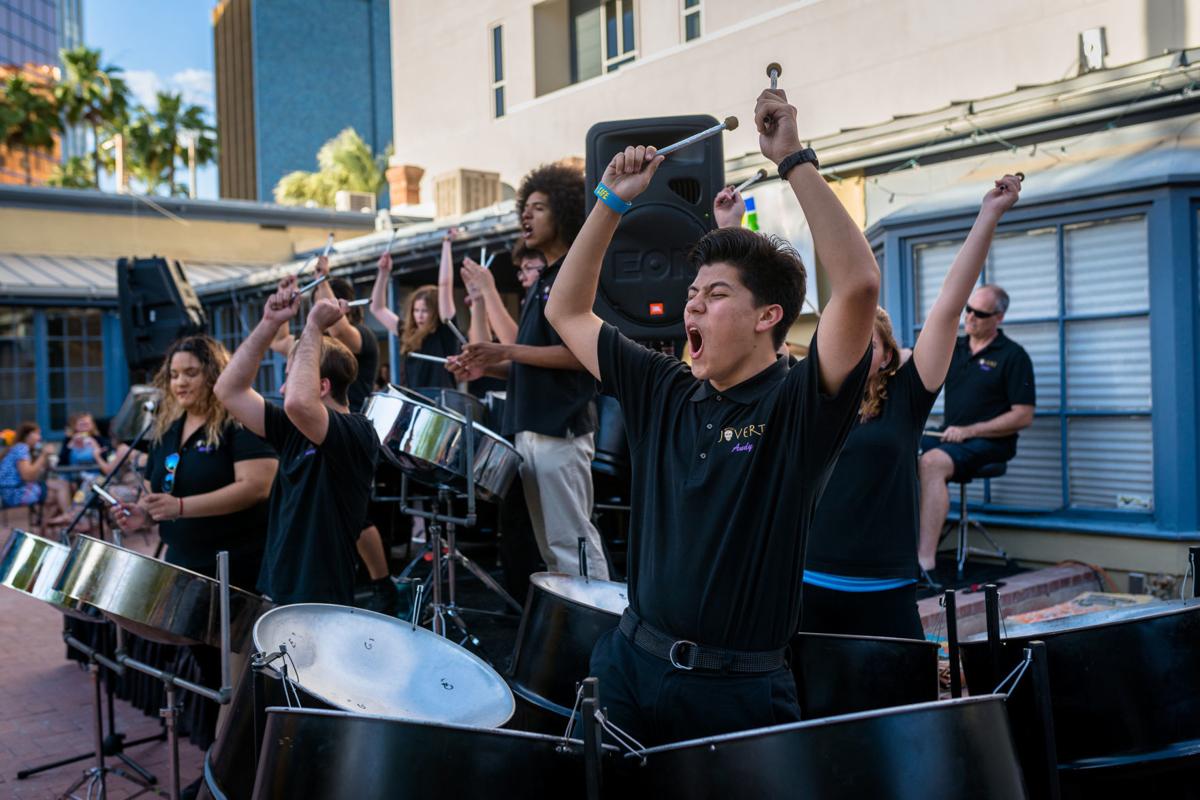Tucsonans interested in making the world a kinder, gentler place should be there with bells on for Ben’s Bells Ninth Celebration of Kindness on Friday.
The event is the signature fundraiser for Ben’s Bells, a project founded in 2003 by Jeannette Maré to honor her son, Ben Maré Packard, after he died suddenly from croup at the age of 2. During the past 15 years, the nonprofit has become synonymous with colorful clay flower bell chimes placed at random locations to encourage kindness; mosaic “Be Kind” public art at schools, parks and other locations throughout Tucson; and weekly “bellings” with Ben’s Bell chimes and Kindness Kits to honor “bellees” who perform acts of kindness.
Amy Collinsworth, a marketing manager for Ben’s Bells, said the mission is simple: To inspire, educate and motivate people to realize the impact of intentional kindness.
“We believe that kindness is a skill that people can learn,” she said. To that end, Ben’s Bells has created various programs and opportunities, including Ben’s Bells Main Gate and Downtown Studios, which are open to the public for creation of “bells.” The diverse programs are facilitated by a force of more than 20,000 volunteers annually.
Services include the Kind Campus Program, which provides free curriculum for pre-kindergarten through grade 12 to educate students, families, faculty and staff about the benefits of kindness. The curriculum, which seeks to empower participants to create a culture of kindness that will extend beyond schools, includes electronic materials, ideas for discussion and projects, materials for art projects and more.
“Just as kids can learn languages easier when they are young, we think that if we can teach them when they are little to do all things with kindness — especially the way they talk with people and interact with others — it will make a difference in all they do. We think that learning to be kind can really impact every decision they make as they grow up. We are helping to raise a kind generation so the next group of adults will do things with kindness,” Collinsworth said.
Ben’s Bells philosophy is backed by a scientific advisory board comprised of 11 international leaders in research, including experts at the University of Arizona who have studied the science of kindness and offer recommendations for educational programming. Collinsworth said research has shown that kindness benefits both physical and mental health, and that recognizing kindness in others increases personal happiness and satisfaction.
“Kindness is not just a personality trait: It is something we can work on and need to develop. For example, if you are in traffic and get that feeling of road rage, we call it a kindness challenger. You can learn tools to deal with those in daily life. And it is popular in our culture now for people to say they are going to perform a ‘random act of kindness,’ but we like to say that we are acting intentionally about kindness. We think that people make choices to be kind, and that makes it more purposeful,” she said.
Ben Collinsworth, Amy’s husband, has witnessed the benefits of the Kind Campus program through his students at Emily Meschter Early Learning Center in the Flowing Wells Unified School District.
Ben, who began using the program in 2014, said it fills an important need in classrooms.
“Especially in public schools, we teachers have a big responsibility to teach academics and make sure our students’ cognitive abilities are developing, but lots of times their character development is left out. This program makes sure they are entering the rest of world with a good sense of how to treat other people. The language and vocabulary of kindness is a big way to tackle that,” he said.
Ben emphasized that even preschoolers take naturally to discussions of kindness, including conversations about actions and words that are kind.
“We really see a change in the way they expect kindness from others and hold themselves responsible for being kind toward others,” he said.
Through his teaching and volunteerism, Ben said that he has recognized the ongoing importance of kindness to our culture and our communities.
“As the world progresses in ways that are often not as considerate as they could be, we, as a society, run the risk of leaving parts of ourselves behind. There is a real danger in leaving our sense of community behind as we become more connected digitally and globally. I think that learning not just kindness, but intentional kindness — and how it is one key ingredient that makes us human and makes us communities that are really connected — is one of the most important skills we can maintain and develop that can basically keep us human,” he said.





